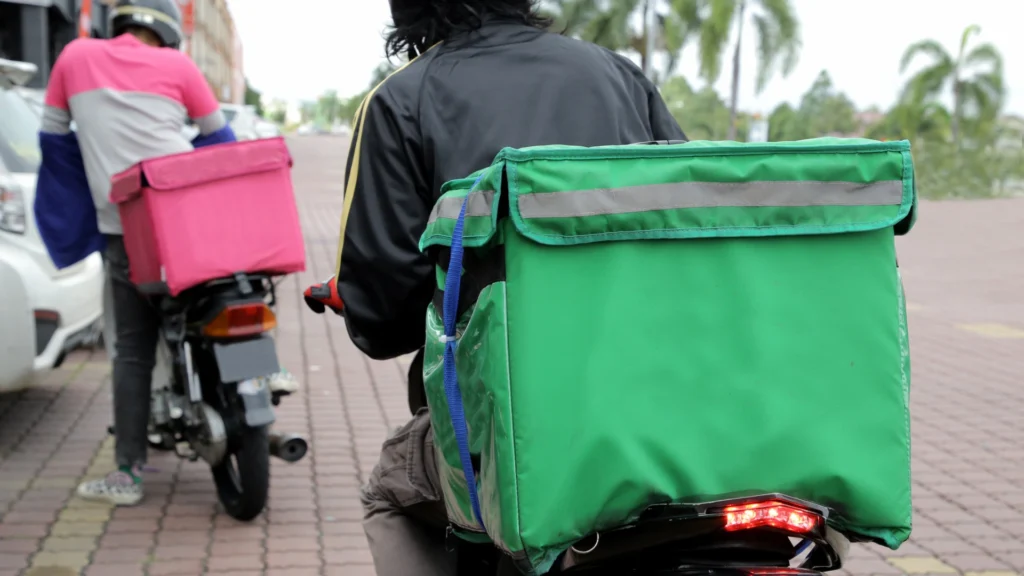
In a fast-moving city like Kuala Lumpur, gig workers are the silent engine powering daily life. From food delivery riders zipping through traffic to freelance designers juggling multiple clients, these workers keep Malaysia moving. But when it comes to healthcare, many are stuck in a dangerous in-between—earning just enough to get by, but not enough to afford traditional medical care.
While full-time employees often enjoy insurance and sick leave, gig workers usually have to pay out of pocket or skip treatment altogether. This makes minor illnesses harder to manage and serious conditions even riskier.
But digital solutions like FEV3R are stepping in to change that. By offering on-demand healthcare apps, platforms like FEV3R provide accessible, affordable, and flexible health coverage designed with gig workers in mind.
This isn’t just a matter of convenience—it’s about survival, dignity, and fairness in one of the fastest-growing employment sectors in Malaysia.
The Harsh Reality of Being Sick Without Benefits
The gig economy healthcare in Malaysia is largely fragmented. Gig workers—think Grab drivers, Shopee riders, freelance content creators, and personal shoppers—often work without contracts or formal benefits. If they fall ill, they don’t have paid sick leave. If they get injured, there’s no employer insurance to fall back on. And if they need a check-up? That usually gets postponed or ignored because of the cost and time involved.
Let’s not forget the physical toll these jobs take: hours on the road, exposure to weather, long screen time, and irregular eating schedules. Health issues are common—but access to care is not.
Unlike salaried workers who can just inform HR or book a clinic visit during office hours, gig workers often don’t even have time to look for a clinic, let alone wait in one. Time is money. For them, every hour spent away from work means lost income.
This is where the real challenge lies: how do we design a freelancer health benefits system that fits the needs of workers who operate outside of the traditional system?
Enter Digital Health: A Better Fit for Gig Workers
The answer may lie in technology. More specifically—telemedicine. With just a few taps on a smartphone, gig workers can now consult certified doctors, get treatment advice, and even receive digital prescriptions, all without stepping away from their job for long.
Apps like FEV3R are reshaping telemedicine for gig workers in Malaysia. Instead of forcing workers to choose between income and health, FEV3R offers healthcare that is fast, affordable, and available 24/7.
Here’s why this matters:
1. Healthcare on Their Terms
With on-demand healthcare apps, gig workers no longer need to make appointments or take time off. They can consult a doctor during a lunch break or between deliveries. This flexibility is key for those with irregular schedules.
2. Affordable and Transparent
Traditional healthcare can be pricey, especially for those without insurance. FEV3R offers a flat-rate subscription model that covers consultations at just RM24 per session—giving workers cost clarity and control.
3. Access to Real Doctors
There’s a misconception that online healthcare is somehow “less real.” But platforms like FEV3R connect users with fully licensed Malaysian doctors, ensuring proper care, not just generic advice.
4. No Clinic, No Commute
This is especially useful for those working in busy urban areas where traffic and parking are a hassle, or for freelancers based in more remote areas without easy access to a clinic.
How FEV3R Helps Close the Healthcare Gap
FEV3R isn’t just another app—it’s a platform built for flexibility. With a mission to democratise healthcare, FEV3R gives access to medical advice without the barriers of time, distance, or income level.
For Malaysia’s gig economy, this is a game changer. The app’s model is tailored to workers who don’t clock in and out like a regular 9-to-5 job.
Whether it’s a food delivery rider who gets caught in the rain and ends up with the flu, or a freelance web designer dealing with chronic back pain—FEV3R lets them get the help they need, fast and without drama.
Through flexible health coverage and on-demand healthcare apps, FEV3R is not only improving personal health but also supporting worker productivity, reducing absenteeism, and ultimately improving livelihoods.

Gig Workers Deserve More Than Just "Side Income" Treatment
There’s long been a perception that gig work is just “temporary” or “extra.” But for many Malaysians, it’s a full-time income and sometimes the only job available. Despite this, they are left out of most formal protections.
By ignoring the health needs of these workers, we risk creating a system that thrives off their labour but fails to protect them when it matters most.
Digital health bridges this gap—not as a replacement for proper policy changes, but as a step in the right direction. It gives gig workers dignity and access without forcing them to fit into a system that was never designed for them in the first place.
Common Health Issues Faced by Gig Workers
To understand the importance of gig economy healthcare in Malaysia, it helps to know what these workers face every day. Based on user behaviours and app feedback, here are some recurring health problems:
- Muscle aches & back pain from long hours of riding or sitting
- Fatigue and poor sleep due to shift-based or round-the-clock jobs
- Colds, flu, and infections from exposure to the elements
- Stress and anxiety from job instability or financial pressure
- Gastrointestinal issues from irregular meals or poor diet
These might not sound serious at first, but if left untreated, they can snowball into bigger problems. Quick intervention via telemedicine for gig workers helps catch these issues early, before they affect quality of life or income.
The Bigger Picture: Building a Healthier Workforce, Digitally
By tapping into freelancer health benefits through apps like FEV3R, Malaysia isn’t just solving a healthcare problem—it’s building resilience in a new kind of workforce. One that’s independent, mobile, and increasingly central to the country’s economy.
As digital health becomes more common, there’s also a growing opportunity for partnerships between government, employers, platforms, and health providers to formalise and enhance healthcare coverage for gig workers.
Imagine a future where food delivery apps automatically offer telehealth credits. Or where freelancer platforms include digital healthcare in their service fees. These aren’t far-fetched ideas—they’re already happening in parts of the world, and Malaysia has the potential to follow suit.
What Needs to Happen Next?
While on-demand healthcare apps are filling some gaps, more can be done:
- Increased awareness: Many gig workers still don’t know these services exist or assume they’re too expensive.
- Digital literacy: Some workers may need guidance on using these apps, especially older freelancers.
- Policy backing: Government support and incentives could help scale these services further and protect gig workers better.
Until then, platforms like FEV3R are leading the charge by making healthcare feel like less of a luxury and more of a right.
Ready to Take Control of Your Health?
Whether you’re a Grab rider, TikTok creator, or part-time tutor, your health matters. You shouldn’t have to choose between earning money and seeing a doctor.
With FEV3R, you don’t have to. Join thousands of other Malaysians who’ve made the switch to on-demand healthcare apps for smarter, more flexible health coverage—designed for how you actually work.
Download the FEV3R app today and experience the healthcare system that moves with you.
Contact Us






